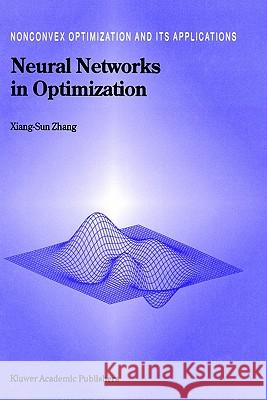Neural Networks in Optimization » książka
Neural Networks in Optimization
ISBN-13: 9780792365150 / Angielski / Twarda / 2000 / 371 str.
Neural Networks in Optimization
ISBN-13: 9780792365150 / Angielski / Twarda / 2000 / 371 str.
(netto: 575,06 VAT: 5%)
Najniższa cena z 30 dni: 578,30
ok. 16-18 dni roboczych.
Darmowa dostawa!
People are facing more and more NP-complete or NP-hard problems of a combinatorial nature and of a continuous nature in economic, military and management practice. There are two ways in which one can enhance the efficiency of searching for the solutions of these problems. The first is to improve the speed and memory capacity of hardware. We all have witnessed the computer industry's amazing achievements with hardware and software developments over the last twenty years. On one hand many computers, bought only a few years ago, are being sent to elementary schools for children to learn the ABC's of computing. On the other hand, with economic, scientific and military developments, it seems that the increase of intricacy and the size of newly arising problems have no end. We all realize then that the second way, to design good algorithms, will definitely compensate for the hardware limitations in the case of complicated problems. It is the collective and parallel computation property of artificial neural net- works that has activated the enthusiasm of researchers in the field of computer science and applied mathematics. It is hard to say that artificial neural networks are solvers of the above-mentioned dilemma, but at least they throw some new light on the difficulties we face. We not only anticipate that there will be neural computers with intelligence but we also believe that the research results of artificial neural networks might lead to new algorithms on von Neumann's computers.











